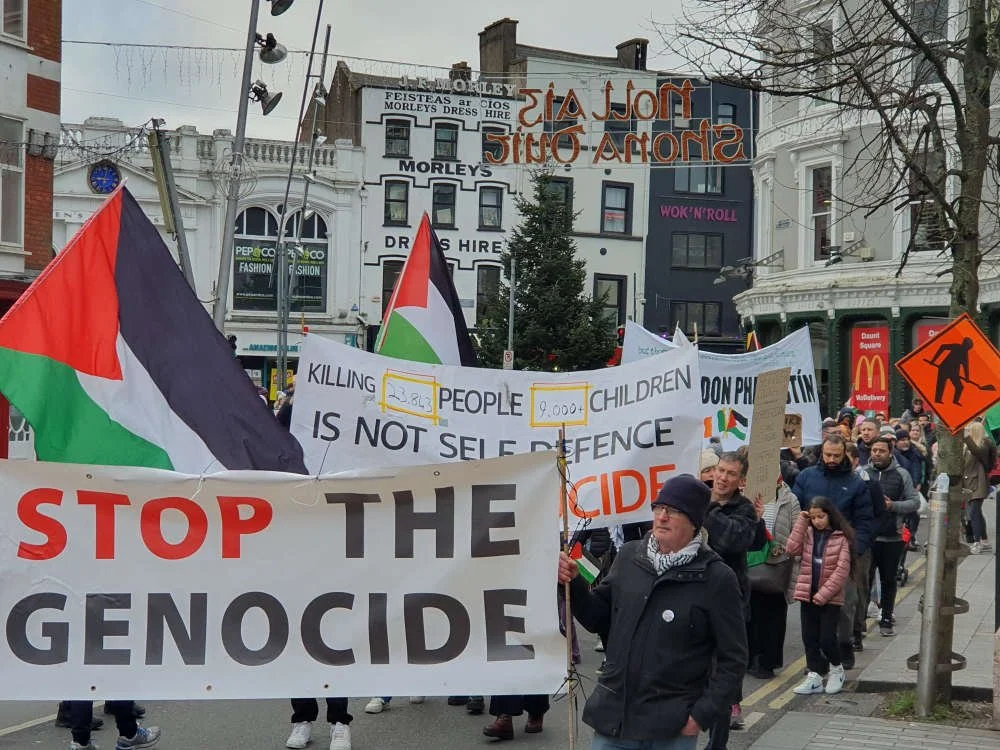Marching in Solidarity
By Reporter Amelia McGrath Martin
It is a rare thing to know that you are watching history unfold before your own eyes, and that is exactly what is happening right now with the conflict in Gaza and in the Democratic Republic of Congo.
On a local level it is amazing to see that the people of Cork are still rallying together every Saturday to march in solidarity with people who are victims of these conflicts. I work in a business along Oliver Plunkett Street and every Saturday around one o’clock people begin marching down the street and their chants still carry even after they have disappeared from view. The thing that amazes me most about this is that the number of people in these marches every week remains quite consistent. Of course, some weeks attendance may vary, there may be more or less people depending on what atrocities have occurred during the week, but the number of people remains consistently large. Every Saturday this march has gone past the front window of my workplace but this past Saturday the February 17 there were two marches on Oliver Plunkett Street and the second march was for the Democratic Republic of Congo. This march was significantly smaller than that of the march for Palestine but judging by the trajectory of the marches for Palestine it is sure to also become a regular thing.
One of my coworkers asked the question ‘what is the point of the marches?’ It is an interesting question and one that probably occurs to a lot of people. If you were to suggest a march as a solution to genocide people would laugh at you. However, it is so important to continue these marches as without raising awareness and showing interest how can we expect appropriate action to be taken. They also do not allow people to forget what is happening outside our small corner of the world. Even just from observing people engaging with the marches every Saturday you can see that people who are out and about shopping are stopping and remembering what is happening, this also registers with our politicians who are best placed to influence the situation.


